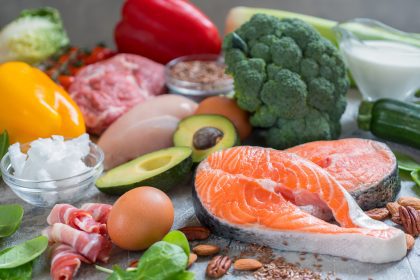When the World Health Organization (WHO) and Food and Agriculture Organization (FAO) released their latest findings about nutrition, they uncovered fascinating insights about common foods that might transform how we think about healthy eating. Their research challenges several long-held beliefs while confirming some age-old wisdom about the power of whole foods.
Nature’s remarkable package
At the heart of these findings lies an intriguing discovery about whole foods, particularly fruits and vegetables. Medical professionals recommend consuming at least 400 grams daily – a target that sounds daunting until you realize how these foods naturally enhance our daily energy levels and protect against various health challenges, including heart issues and cognitive decline.
The surprising truth about everyday foods
When the World Health Organization (WHO) and Food and Agriculture Organization (FAO) released their latest findings about nutrition, they uncovered fascinating insights about common foods that might transform how we think about healthy eating. Their research challenges several long-held beliefs while confirming some age-old wisdom about the power of whole foods.
Nature’s remarkable package
At the heart of these findings lies an intriguing discovery about whole foods, particularly fruits and vegetables. Medical professionals recommend consuming at least 400 grams daily – a target that sounds daunting until you realize how these foods naturally enhance our daily energy levels and protect against various health challenges, including heart issues and cognitive decline.
The carbohydrate mystery solved
For years, carbohydrates have sparked heated debates in nutrition circles. Now, WHO and FAO experts clarify that these nutrients should comprise 45% to 75% of daily caloric intake. But not all carbohydrates offer equal benefits. Whole grains like oats and rye, along with vegetables, fruits, and legumes, provide essential nutrients that support heart health and help regulate blood sugar levels.
Uncovering fat’s hidden benefits
Despite years of negative publicity, fats emerge as crucial players in our health story. WHO and FAO research suggests that 15% to 30% of daily calories should come from fats, particularly the unsaturated varieties found in foods like avocados, nuts, and fatty fish. These fats prove essential for everything from hormone production to brain function.
The protein puzzle
Understanding protein needs becomes increasingly important as we age. WHO and FAO experts recommend dedicating 10% to 15% of daily calories to protein sources. This nutrient, crucial for tissue repair and maintenance, works best when consumed throughout the day rather than in one large serving.
Nature’s protein powerhouses
While lean poultry and fish remain excellent protein sources, plant-based options like lentils and beans offer impressive nutritional profiles. Greek yogurt and cottage cheese provide convenient protein boosts, while nuts and seeds add variety to protein intake while delivering additional health benefits.
The salt and sugar connection
WHO and FAO findings reveal intriguing insights about sodium intake, suggesting adults limit consumption to 2 grams daily. This recommendation stems from research linking excessive sodium to cardiovascular challenges. Similarly, they advise keeping free sugars below 10% of daily calories, with 5% being ideal for optimal health.
The processing predicament
Modern food processing methods have created new challenges in maintaining healthy diets. Ultra-processed foods often contain concerning levels of added sugars, salt, and unhealthy fats. These ingredients can lurk in unexpected places, making label reading an essential skill for health-conscious individuals.
Understanding red meat’s role
WHO and FAO research brings new perspective to red meat consumption. While this food provides valuable nutrients, moderation proves key. Their findings suggest limiting red meat intake while exploring alternative protein sources can benefit long-term health.
The power of inclusion
Rather than focusing solely on foods to avoid, WHO and FAO experts emphasize the importance of including beneficial foods in daily meals. This positive approach makes healthy eating more sustainable and enjoyable over time.
Making whole foods accessible
One fascinating aspect of these recommendations involves making whole foods more approachable. Simple strategies like keeping fruit visible on countertops or preparing vegetables in advance can make healthy choices more convenient.
The timing factor
Research suggests that when we eat certain foods matters almost as much as what we eat. Spreading protein intake throughout the day, for example, helps optimize its benefits for muscle maintenance and repair.
Cultural considerations
WHO and FAO experts acknowledge that healthy eating looks different across cultures. Traditional diets from various regions often naturally align with these recommendations, offering valuable lessons about sustainable nutrition practices.
The sustainability connection
These dietary guidelines increasingly consider environmental impact alongside health benefits. Many recommended foods, particularly plant-based options, tend to have lower environmental footprints while supporting optimal health.
Adapting to modern lifestyles
While traditional whole foods form the foundation of healthy eating, WHO and FAO experts recognize the need to adapt these principles to contemporary life. This might involve finding convenient ways to incorporate nutritious foods into busy schedules.
The role of planning
Success in following these guidelines often depends on thoughtful planning. Simple strategies like weekly meal preparation can make healthy eating more manageable while reducing reliance on processed convenience foods.
Understanding portion control
While focusing on food quality remains crucial, quantity also matters. WHO and FAO guidelines help individuals understand appropriate portions without becoming overly restrictive.
Making sustainable changes
Rather than advocating for dramatic dietary overhauls, these recommendations support gradual, sustainable changes. Small adjustments in food choices can accumulate into significant health benefits over time.
The future of nutrition
Ongoing research continues to refine our understanding of optimal nutrition. WHO and FAO experts anticipate learning more about how different foods affect health, potentially leading to even more targeted recommendations in the future.
Empowering informed choices
Knowledge about nutrition enables individuals to make informed decisions about their health. Understanding the reasoning behind these guidelines helps people adapt them to their personal circumstances and preferences.
These WHO and FAO findings offer valuable insights for anyone interested in optimizing their health through nutrition. By focusing on whole foods, balanced nutrients, and mindful eating practices, individuals can work toward better health outcomes while enjoying their food choices.
The key lies not in perfect adherence to every guideline but in making informed choices that support long-term health goals. As research continues to evolve, these recommendations provide a solid foundation for making nutritious food choices in our modern world.













